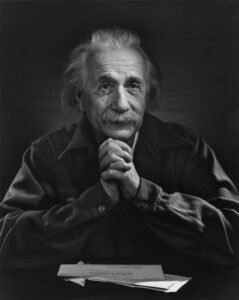From Einstein to Netanyahu, Jewish voices have shaped and challenged Israel’s path. Now, in the shadow of Gaza, their differences speak louder than ever.
A Brief History: From Hope to Hardline
In 1948, Israel was born from the ashes of the Holocaust—a homeland for Jews after centuries of persecution. But even before its founding, one of the most revered Jewish thinkers in history, Albert Einstein, was asked to lead the new nation. He declined. In his 1947 letter to the Zionist leadership, Einstein expressed deep concern about the rising tide of nationalism. He warned that if Israel defined itself through conflict and exclusion, it could never be truly free.

Einstein’s fears were prophetic.
In the decades that followed, Israel grew into a military and technological powerhouse. Yet it also became locked in a seemingly endless cycle of war, retaliation, and occupation. The Six-Day War in 1967 saw Israel seize Gaza and the West Bank. Oslo in the 1990s brought hope of peace. But after failed accords, a second intifada, and the rise of Hamas, those hopes collapsed.
Today, the situation has reached an apex of tragedy. Hamas’s attack in October 2023 saw over 1,200 Israelis killed and hundreds taken hostage—including children and the elderly. Israel responded with a blockade and a relentless bombardment of Gaza, displacing over a million Palestinians and leading to widespread destruction, famine, and outrage. The West Bank, too, has faced violent crackdowns and escalating settler violence.
Now, Einstein’s 1947 warning echoes across a polarized global debate.
The Moral Protest of Ben Cohen
On May 14, 2025, Ben Cohen—co-founder of Ben & Jerry’s and the son of Jewish immigrants—was arrested during a Senate hearing after disrupting the proceedings to protest U.S. military aid to Israel.
“Aid to Israel today is complicit in war crimes,” Cohen shouted before being escorted out.
For Cohen, being Jewish means standing up for human rights, not nationalism. He has previously made headlines for supporting BDS and for ending Ben & Jerry’s sales in the West Bank. His activism is rooted in his Jewish identity: a belief in justice, in compassion, and in never allowing another people to be dehumanized.
“As a Jew, I say not in my name,” Cohen told Democracy Now! in 2024.
To critics, he’s a radical. To supporters, he’s a moral compass.
Netanyahu’s Doctrine of Security
For Prime Minister Benjamin Netanyahu, Jewish history demands vigilance, not moral relativism.
“October 7th changed everything,” he declared in a recent address. “Never again means defending ourselves—without hesitation.”
To Netanyahu, Hamas’s massacre proved that any weakness invites annihilation. He has vowed to dismantle Hamas completely, maintain control of security in Gaza, and prevent Palestinian statehood unless Israel’s safety is guaranteed.
He also believes that critics like Cohen and Sanders misunderstand the existential threat Israel faces. “They don’t have to live next to tunnels and rockets,” he said. “I do.”
Netanyahu’s policies have brought Israel international condemnation—but also domestic support from a population traumatized by war.
Bernie Sanders and the Struggle Within
Senator Bernie Sanders is also Jewish. His father fled antisemitism in Poland. Family members died in the Holocaust. And yet, Sanders is among Israel’s fiercest critics in Congress.
“I am a proud Jew,” he often says. “And I believe in Palestinian freedom.”
Sanders opposes Hamas but believes that U.S. military aid has made Washington complicit in Israel’s human rights violations. He has called for a ceasefire, pushed for humanitarian aid, and urged a two-state solution.
“This is not about being pro-Israel or pro-Palestine,” he said in a Senate speech in March. “It’s about being pro-human.”
To many young American Jews, Sanders represents a new moral Jewish identity—one unafraid to challenge the state of Israel.
The Third Narrative: A Fractured Unity
What unites Cohen, Netanyahu, and Sanders is not ideology—but identity. Each speaks from a place shaped by Jewish history. But each arrives at a different conclusion.
To some, this is a crisis of loyalty. To others, it is the strength of a people who argue, dissent, and search for justice, even when the world demands silence.
In the end, the Jewish response to Gaza—like the conflict itself—cannot be reduced to a single voice. It is many. And their stories matter more than ever.
Sources & Further Reading:
- BBC: Ben & Jerry’s co-founder arrested after Senate Gaza protest
- Jewish Virtual Library: Bernie Sanders
- Israel Foreign Ministry Statements
- Einstein’s 1947 letter to the Zionist movement
- https://3narratives.com/gazas-humanitarian-crisis/



Thanks for sharing. I read many of your blog posts, cool, your blog is very good.
I don’t think the title of your article matches the content lol. Just kidding, mainly because I had some doubts after reading the article.
Your point of view caught my eye and was very interesting. Thanks. I have a question for you.
Please let us know your question?